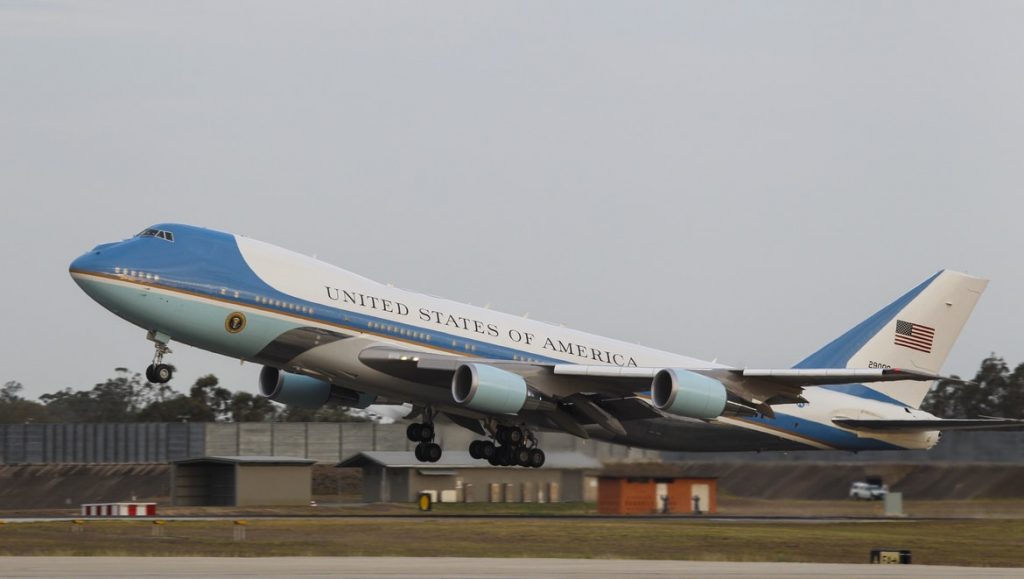
Boeing’s CEO has said its Air Force One deal with the United States government was a risk the company “shouldn’t have taken” amid reporting higher first quarter losses.
In 2018, the US Air Force purchased two undelivered Boeing 747-8 jets, designated VC-25B, to replace the previous 747-200s that have transported US presidents and their staff for more than three decades. That same year, Boeing secured a US$3.9 billion contract to modify the two previously sold, to be delivered in 2024.
In 2016, then President Donald Trump was promised by the former Boeing CEO Dennis Muilenburg that the cost of replacing the Air Force One jets would not exceed US$4 billion.
But in its first-quarter earnings, the planemaker lost US$1.2 billion, largely “driven by higher supply costs” and “schedule delays” and recorded it went US$660 million over its budget for the Air Force One program. In April last year, Boeing recorded a US$318 million charge on the program driven by COVID-19 supply chain issues.
“Air Force One – I’m just going to call a very unique moment, a very unique negotiation, a very unique set of risks that Boeing probably shouldn’t have taken,” Boeing chief executive Dave Calhoun told investors on Wednesday.
“But we are where we are, and we’re going to deliver great airplanes. And we’re going to recognise the costs associated with it,” Calhoun added.
He said they were “written off the day” the company took them, and had expected to invest a “fair amount” of Boeing’s own money into the transformation.
The Boeing 747-8 aircraft is designed to be an airborne office for the president in case of an emergency, and will be equipped with a self-defence system, advanced communication systems, sleeping areas and military avionics.
In 2018, Boeing tweeted that it was “proud to build the next generation of Air Force One, providing American presidents with a flying White House at outstanding value to taxpayers,” which was set to save US citizens more than US$1.4 billion.
Last April, GDC Technics, a subcontractor hired by Boeing to complete the interior fit-out on the new Air Force One aircraft, filed a countersuit against Boeing seeking over $20 million after the US planemaker cancelled its contract and launched its own suit.
A month before in March, Boeing cancelled its contract and filed a lawsuit against GDC Technics, with Boeing stating the work had fallen over a year behind schedule.
Boeing also recorded US$367 million in charges on its T-7A Red Hawk program, a contract won in 2018 to replace the air force’s Northrop T-38 Talon aircraft. The planemaker said it was primarily driven by “ongoing supplier negotiations impacted by supply chain constrains” and the COVID-19 pandemic.




